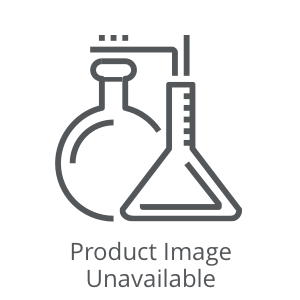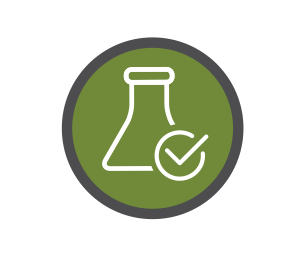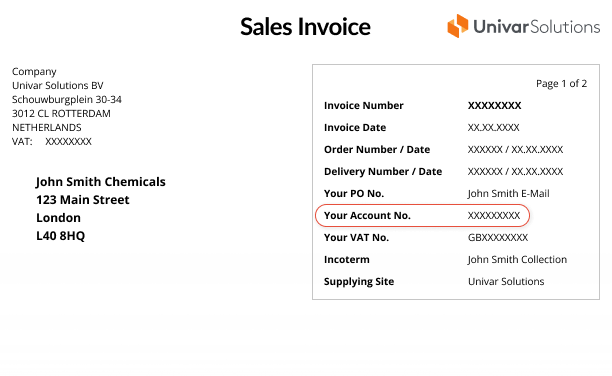We’re here to provide you with more information or help answer any questions you might have. Send us a note and we’ll get back to you as soon as possible.


Sustainable solutions
for commercial success
Sustainable solutions
for commercial success
Sustainable solutions for commercial success
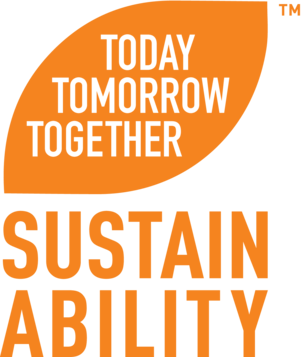

Building a better world today, tomorrow, together
As a global leader in chemical and ingredient distribution, we work at the intersection of science and technology, helping customers bring forward sustainable solutions to achieve their ESG goals. That means we are more than a distributor: we are a technical innovator and supply chain connector, exploring new ways to take your products to the next level and solve challenges for a better tomorrow.
Why is sustainability important to your bottom line? Sustainability can mean a lot of things depending on your perspective or business imperative and where you are on the sustainability journey. We all want to meet the moment, safeguarding people and the planet, while keeping businesses successful and profitable. Since 2008, we've made substantial progress in sustainability as a responsible company doing just that, and we will continue to lead the way in our commitments to driving a sustainable future in distribution.
Sustainable & Natural Product Portfolio
A framework for sustainability at the product level
Because there is no global definition of sustainability at the product level, we developed a Sustainable & Natural Product Framework to help customers evaluate sustainability for ingredients and raw materials. The Framework is already enabling productive communication on product sustainability and we are just beginning. As innovation and regulations emerge, our Framework will evolve. Visit here often as we add new Sustainable & Natural Product Skus every week!
Here are the first six sustainable & natural product characteristics. Click on each one for definitions and examples.
Sustainable & Natural Product Portfolio
A framework for sustainability at the product level
Because there is no global definition of sustainability at the product level, we developed a Sustainable & Natural Product Framework to help customers evaluate sustainability for ingredients and raw materials. The Framework is already enabling productive communication on product sustainability and we are just beginning. As innovation and regulations emerge, our Framework will evolve. Visit here often as we add new Sustainable & Natural Product Skus every week!
Here are the first six sustainable & natural product characteristics. Click on each one for definitions and examples.


Social Impact Accreditation
These materials are supplied with a specific socially focused related claim, certification, attestation, or accreditation from an independent party. The certification/ accreditation may indicate the producer, supplier, or product meets certain standards which enable social impact to be realized in a material's production. Suppliers must provide certification aligned to the most recent standard available with expiration dates included.
The accreditation must be given at the product level. Accreditations address criteria aligned with delivering social value (e.g. fair wages, labor practices, transparency and community investment).
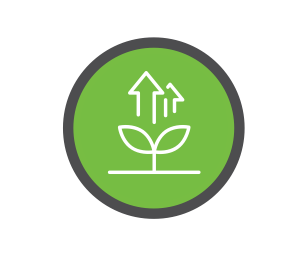

Natural or Bio-based
This sustainability characteristic seeks to provide customers with important information regarding the feedstocks used to create each product. To be considered natural or bio-based, a product must comprise >50% natural ingredients, or >50% bio-based feedstocks by mass. Please note that here, “natural” does not refer to specific regulatory language such as that defined by TSCA or REACH.
Natural products contain greater than 50% natural ingredients[1] by mass, where “natural ingredients” are defined by ISO 16128:1-2016. Natural ingredients may include plants, fungi, animals, microbes, or minerals, and are only processed using physical processing such as grinding, drying, centrifuging, distillation, and extraction using solvents, and fermentation reactions that occur in nature and lead to naturally-occurring molecules. Natural ingredients are not genetically modified. Suppliers will provide documentation of naturality including the natural material feedstock and the Natural Index and/or natural content by mass.
Bio-based products are derived from greater than 50% bio-based feedstocks such as plants, fungi, animals, and microbes. Bio-based ingredients can be chemically processed or genetically modified, while natural ingredients cannot. For this reason, the supplier should provide documentation which makes it clear if the product is natural, bio-based, or both. Suppliers will provide documentation of bio-based characterization including the biological feedstock and the bio-based content by mass.
[1] Here it is assumed that individual ingredients do not chemically react with one another in a product.
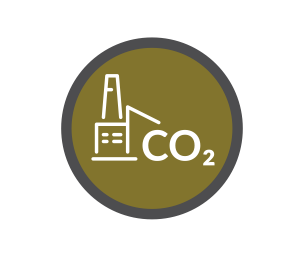

Carbon Footprinting
Starting in October 2023, carbon footprinting will be considered a “Sustainability Characteristic” when there is LCIA or PCF calculation data, audited by a third party, that shows a ≥10% reduction vs a conventional fossil-based product.
Any supplier PCF or LCA must be supported by providing the underlying materials to Univar Solutions, accompanied by a figure on the emission per unit of product (likely in Kg or metric tonne of CO2 per unit), KgCO2e or tCO2e/ton product.
If a PCF or LCA does not show a ≥10% reduction, we will gladly accept this data, to be posted on the Product Description Page outside of the Sustainable and Natural Products section. This very important information will be gated behind login security for customers to self-serve. Click here if you need to sign up for this feature of UnivarSolutions.com.


Circular Materials
Circular materials are those which support the principles of a circular economy through responsible capture and reuse.
Circular materials are produced from the recovery and reprocessing of waste products or previously-used products. This can apply to the reuse of product or process by-products, and to pre-consumer and post-consumer waste.
Evidence of circularity should include the waste material source and the circular content by mass (dry mass or mass without added water). Circular materials can include physically segregated material (100% circular), or it can be partially circular. Suppliers will provide the origin of circular material and the circular content of the product as a percentage.
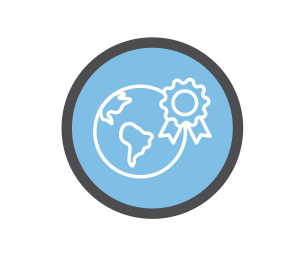

Environmental Accreditation
These materials are supplied with a specific environmental–related claim, certification, attestation or accreditation from an independent party.
The accreditation must be at the product level. Accreditations address criteria aligned with delivering environmental benefits (e.g. land use benefits, water and waste impact reduction, biodegradability or regenerative practices of production).
The most credible ecolabels offer clear criteria for performance and require data to demonstrate performance. Third party auditing offers additional credibility. An ecolabel created by a supplier itself is not acceptable.
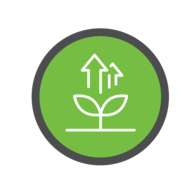
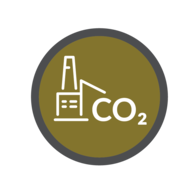
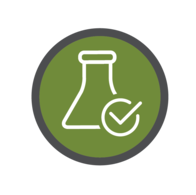



Explore sustainable formulations and ingredient innovations for your industry
At Univar Solutions, our formulators, chemists, and engineers formulate sustainability into new product development to meet end market demand. Whether you desire to add sustainable and natural ingredients or update formulations for new regulation and customer demand, we have a sustainable formulation to accelerate your launch. Each market presents unique ways to innovate products within their offerings to address sustainability.
Learn more about sustainable formulations in your specific market or product family:


We are committed to supporting you on your sustainability journey and helping keep global communities healthy, fed, clean, and safe.
In August 2022, we surveyed our global customer base:
51%
of our customers currently report their sustainability goals
Performance remains the
#1
reason customers purchase new products.
Let's lead the way to a more sustainable future, together.
In August 2022, we surveyed our global customer base: 51% of our customers currently report their sustainability goals, and performance remains the #1 reason customers purchase new products.
Let's lead the way to a more sustainable future, together.
Sustainability adds value and makes business sense.
By leveraging our strong portfolio of sustainable products, services, practices and technologies to aid customers and consumers in meeting their sustainability goals, we demonstrate our commitment to sustainability and vision for a better world.
Sustainability makes good business sense and aligns with our core values of being serious about safety, a place where people matter, a company that's valuable to others and does what they say so that together, we win. Combined, these sustainability principles illustrate how through common goals, we can work toward a better tomorrow through next-generation solutions.
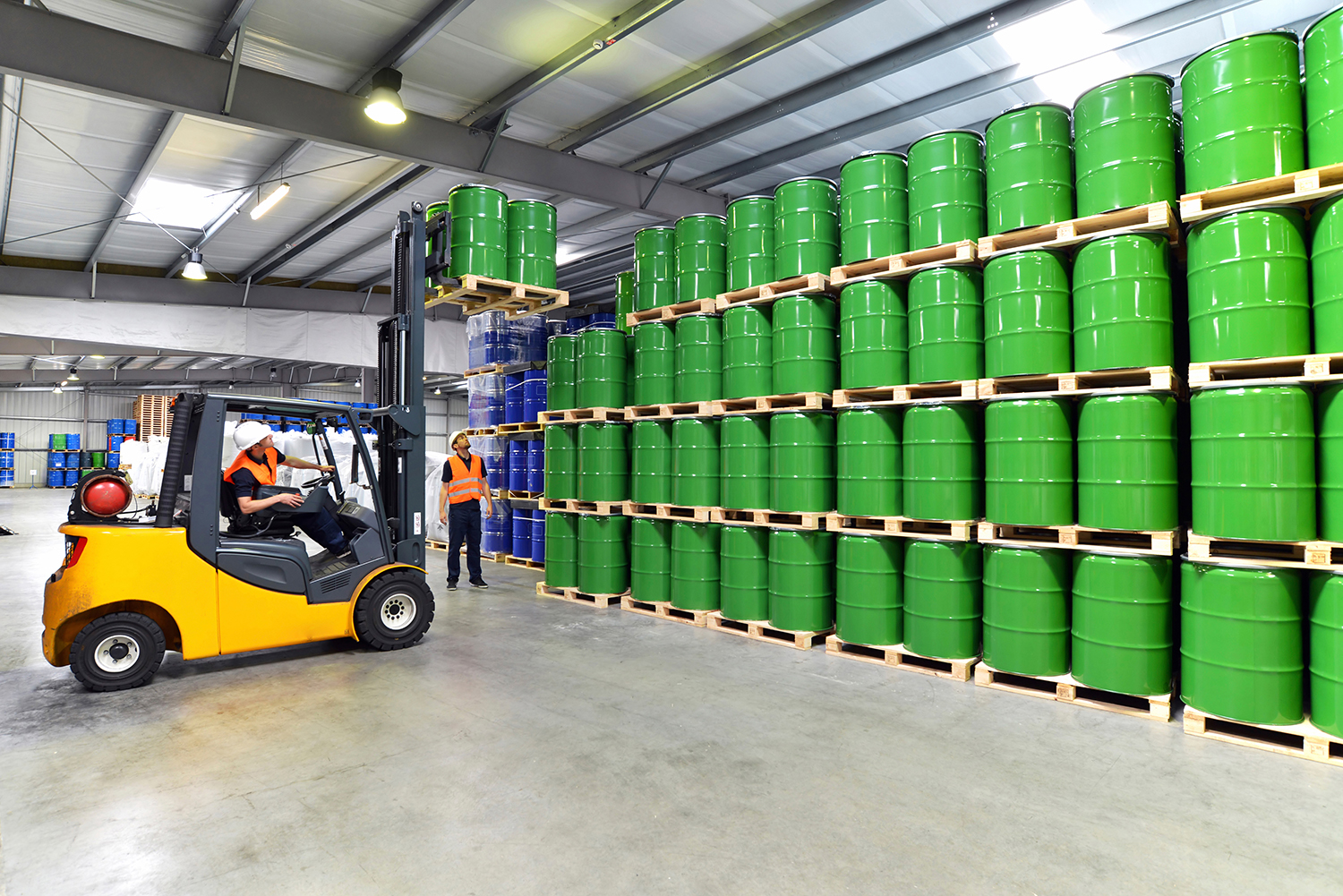

Sustainability in Action
80% CO2 reduction from supplier to customer delivery Challenge: Source products efficiently and with the lowest carbon footprint
Solution: Optimize supply chain by switching form trucks to railcars
Results: 80% reduction in CO2 emissions from source to customer
|  |
Identified effective ingredients for 100% natural and sustainable wax alternatives Challenge: Confirm sustainability attributes for an alternative option to beeswax
Solution: Specialty ingredient innovation backed by performance data and testing
Delivered 100% natural alternative through our Solution Center
|  |


Sustainable services
- Low carbon deliveries
- Sustainable reconditioned packaging
- Formulate for end market sustainability
- Diversity, Equity and Inclusion (DEI) »
*NOTICE: All product information is provided in good faith and is believed to be accurate as of the date of publication based on information received from the supplier and secondary databases. However, Univar Solutions is not able to verify whether third-party data is accurate, complete, and up-to-date and assumes no responsibility, obligation, or liability for the information provided. NO GUARANTEES OR WARRANTIES ARE GIVEN AND ALL IMPLIED WARRANTIES, SUCH AS THOSE OF MERCHANTABILTIY OR FITNESS FOR A PARTICULAR PURPOSE, ARE EXPRESSLY EXCLUDED. Customer is solely responsible for determining whether products and/or the information provided are appropriate for Customer’s use, and Customer assumes all risk and liability in acting on the information provided.
Our Suppliers also sign our Supplier Code of Conduct so you can be assured that we are working throughout our supply chain to transparently create our Sustainable & Natural Products Portfolio.


